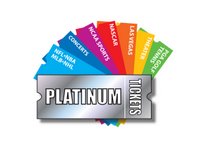ATHLETES competing at the Beijing Olympics may be detained by Chinese authorities for up to 72 hours without their embassy or team management being notified of their arrest.
The expected 440 members of the Australian team will be provided with specially printed contact cards - written in Mandarin - urging police or security officials to contact the Australian embassy immediately in the event they are detained. But legally, authorities are not required to make any such contact for up to three days under Public Security Bureau laws.
International Olympic Committee officials have been frustrated in their attempts to have the law set aside for the duration of the Games.
Olympic officials want a protocol introduced that makes it mandatory for an athlete's embassy to be informed immediately if they are detained. "The IOC has expressed concerns about the fact if someone is taken into custody by Chinese authorities, the embassy is not notified for 72 hours," Australian Olympic Committee president John Coates said yesterday.
He said athletes had been counselled about isolated protests that might be held outside the designated Olympic zones and, if they were observing such activities, they should not get too close "in case they get swept up in anything".
Section managers of the various sports in the Australian team will be in charge of trying to keep abreast of the whereabouts of their athletes at all times, particularly when they have finished competition and travel outside the Olympic Green area, where about half the events will be held.
But Coates reiterated that athletes had a right to express their opinions - noting that cyclist Cadel Evans wore a pro-Tibetan T-shirt recently.
"As far as we are concerned, when it comes to personal expression in a blog, a personal diary … a protest or demonstration [beyond the Olympic venues or the Olympic village], if they want to do that, fine. But coaches are saying, understandably, it is probably best to wait to finish the competition before you do."
Coates said it was reasonable to ban protests or the expression of political views at Olympic venues, otherwise it "could be warfare".
Meanwhile, a new sponsor of the AOC, BankWest, will be the naming-rights partner of the welcome-home parades in Australian capital cities after the Games.
"It is something we feel the public are entitled to, and the athletes like them," Coates said .
Softballer Natalie Ward said the prospect of being involved in the parades was an incentive to perform well.
Subscribe to:
Post Comments (Atom)

No comments:
Post a Comment